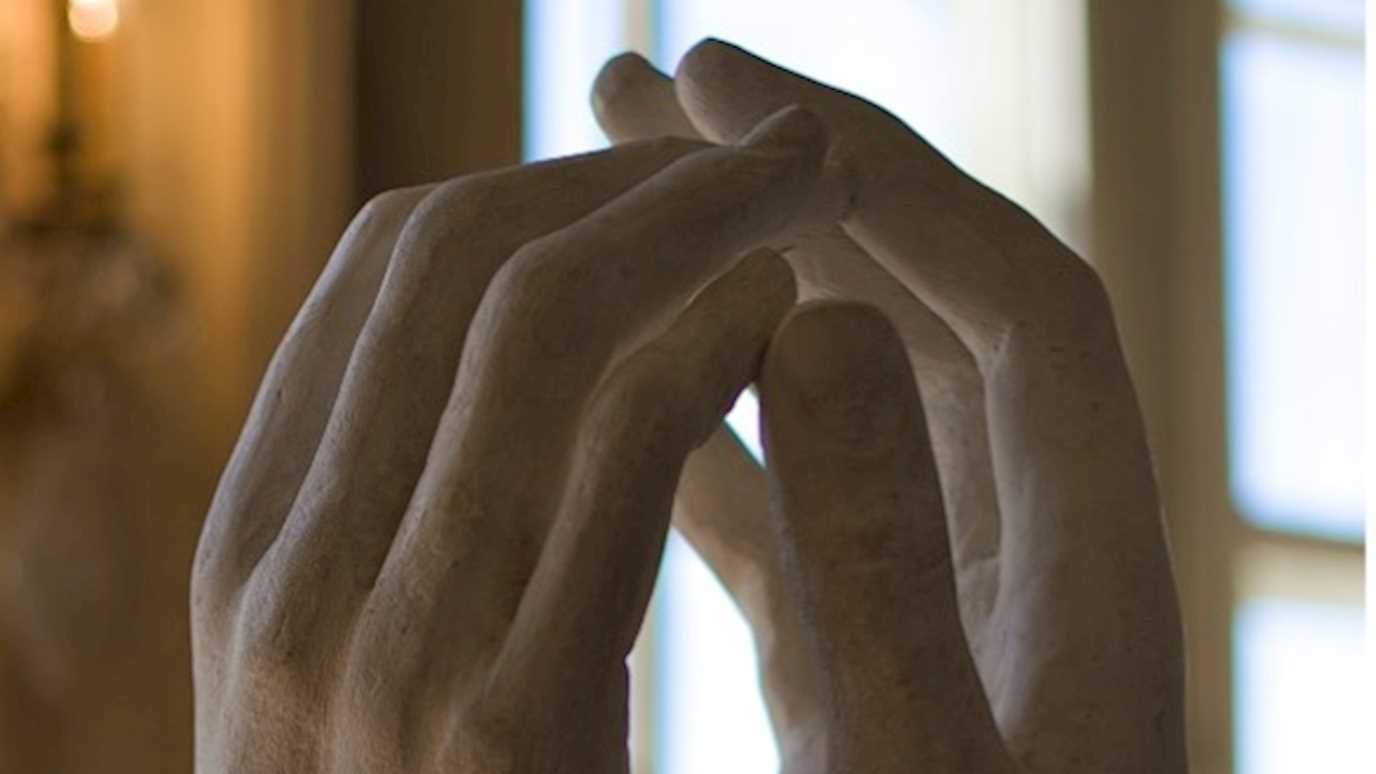We are delighted to announce that Julian Johnson, Regius Professor of Music, has been awarded a Wolfson Research Professorship for his project ‘The Persistence of the Aesthetic: The Value of Musical Listening in the 21st Century’.

Auguste Rodin’s La cathédrale (1908) is a perfect example of an intelligence of the senses – a figure that embodies a way of being towards the world and others, and makes sense without ‘saying’ anything.
The British Academy awards Wolfson Research Professorships every five years to the ‘most outstanding established scholars to enable them to concentrate on a significant research programme’. We are particularly proud of Julian’s achievement because the scheme is extremely competitive, with a success rate of about 5 per cent. This is only the second time in its history that a Music scholar has gained a Wolfson Research Professorship.
Julian explains his project:
“Listening to music provides a perfect case study for the special kind of attentiveness we call ‘aesthetic’. My project draws on a remarkable convergence of recent research to explore the idea that this ‘aesthetic’ attitude is a form of sensory intelligence – an embodied rather than linguistic way of knowing the world.
“I’ll be exploring this idea in relation to music, but also visual art, literature and dance. I’ll be engaging with scholars and practitioners from a wide range of disciplines (from philosophy and psychology to geography and ecology) to explore how aesthetic experience affords behaviours of essential value to human life: a capacity for listening, empathy towards others, a tactile awareness of the world, a care for the particular over the abstract, and a capacity for wonder.
“Why is that important? Because, far from being subsidiary or marginal to wider social, political and environmental issues, the ‘persistence of the aesthetic’ may thus prove to be central to our individual and collective futures. To that end, in addition to producing a new book, I’ll be curating some public-facing events to provoke debate and develop awareness, and engaging those who shape public policy on the arts and education to think again about the value of aesthetic intelligence.”























